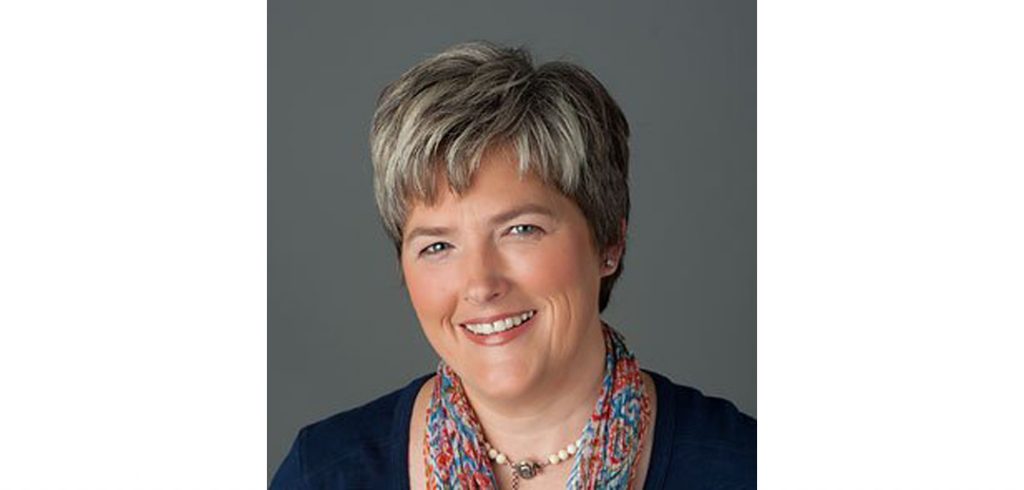Imagine making that statement, and then being offered a writing position with a top marketing firm.
That’s exactly what happened for Marcella Allison. Since then, she’s made incredible leaps in her freelance career. Marcella’s client list is a Who’s Who in Direct Marketing, and she continues to attract bigger names. Her income continues to balloon.
The day we spoke, Marcella was in the middle of a big promotion launch — meaning a sales letter she wrote was about to mail to tens of thousands of subscribers to her client’s newsletter. She called it an exciting, busy day, where she felt “a little like a lunatic trying to be coherent.”
But what she shared hits the bulls-eye if you’re finally ready to take your writing seriously. Let’s jump right in …
***
You had a colorful start in the writing world — will you tell us about it?
I kind of had two different starts in copywriting. My first job out of college was writing marketing copy for a graphic artist book club based in Cincinnati. I had just graduated from college in Chicago, it was 1987, and there were no jobs for English majors anywhere. So I interned with this book club and ended up landing a job. I wrote the copy for the book club bullets that were sent out to describe the book, along with ads that sold the book club to graphic artists. So that was my first start.
I was downsized out of that job and found another job managing a contemporary art gallery, which was a riot. After that I owned my own organic gardening store for a while, then I got my MBA, then I was a venture capitalist. When the venture capital funds started winding down, I was stuck trying to figure out what to do next.
It was the early days of e-mail marketing and a friend of mine was working as a marketing consultant for Schaeffer’s Investments Research in Cincinnati. They needed someone who could write promotional e-mails for these option-trading services who understood options and could write marketing copy. So my friend called me out of the blue and said, “Would you consider giving us a try? I know you’ve written copy before, and you understand options because of your venture capitalist background… ”
So that’s when you first started freelancing?
Yes. I did it for about a year, and at the same time was working as a fundraiser for a nonprofit. I loved what the organization did, but they were going through a lot of changes that made it chaotic to work there.
After one particularly horrible day at work, as I was driving home during my 50-minute commute, I called my contact at Schaeffer’s and told him, “I am losing my mind at this job. You keep telling me you want me full-time, so you have 45 minutes to make me an offer. I don’t know that I will ever be this fed up with my job again but if you make me a decent offer before I hit my driveway, I just might say yes.” He said, “I’ll be right back.” He and his partner came up with a figure, then called me back and made me an offer when I was 15 minutes from my house. I said “Done, I’ll start.” The next day I resigned my job and started out at Schaeffer’s Investment Research writing e-mails as an in-house writer. So that was my second start.
No kidding!
Yeah. And then they introduced me to AWAI. I reached out to them to learn more about direct marketing and to make contact with more writers. Through some AWAI contacts, I met some A-list direct mail copywriters who were looking for apprentices. One of those top copywriters called me up and asked me to apprentice with him writing alternative health promotions. At the time, I only knew finance, so I liked the idea of broadening my base.
You gave up your in-house position?
I asked my contact at Schaeffer’s if they would let me go freelance and work for them half of the week. I told them I’d spend the rest of my time working with an A-list copywriter and learning to write better copy over all – and that would in turn benefit them. So they said yes. It was a great setup for me, because my income from Schaeffer’s gave me the security to make that jump, and even though I wasn’t making much as an apprentice, I was learning a ton.
What exactly did you do as an apprentice? Did you work for free?
Not for free, though I earned less per hour than I would have if I’d done the writing myself. So I might have written all the bullets and all the copy for the first several drafts of a sales letter, and then the senior copywriter would take it from B- copy to A+ copy. At the beginning, my hourly rate probably averaged out to seven bucks an hour. I could’ve made more at Starbucks. But in exchange for that, this copywriter was giving me an entire education on how to write copy from soup to nuts. That hands-on, minute by minute, daily critique was something I could not get anywhere else.
Plus, I hung onto my position with Schaeffer’s because that helped me pay the bills while I was being an apprentice.
I also linked up with another A-list copywriter at the time — I met him at an AWAI event. We didn’t have a formal agreement, but he liked my instincts and offered to pay me for critiques and feedback. My response was, “I’d rather you just swap critiques with me.” He went for it, so I had a second expert to learn from. Although, sometimes when I submitted something, he wouldn’t even critique my copy – he’d say “Go read these three books and then try again.”
Have you had any failures over the years?
OMG, I’ve had plenty of them along the way. I think they can all be attributed to my biggest challenge as a writer that I’ve had to overcome: I have a terror of being less than perfect, of failing. And the way that plays out in my copywriting is that I would get completely frozen, where I would second-guess every word I wrote until I seized up like an engine when you forget to put the oil in. Then, I wouldn’t write a word for weeks on end. Then finally when I was, like, 24 hours away from the deadline, I would panic and write the entire promotion without sleeping. Because the terror of not turning anything in, finally overcame the terror of writing the “wrong” words. This didn’t give me time to really craft it and it cost me the control many times. Ironically, it did give me the ability to write copy very fast and at the last minute, which has been a blessing in my career at times.
So how did you get over that deadly perfectionism/panic/all-nighter circus wheel?
Hmmm … lots of self help products! Plus, I started writing in teams. My fabulous writing partner helps keep me on track, because she is completely deadline driven and organized and never ever late. So she pushes me to be better. Also, letting other writers on my team know my goals and deadlines helps a lot. I’ve been emailing my mentor every Monday with my goals for the week and how I’m doing and he holds me accountable. And that’s a huge help.
A writing partner? How does that work?
I met her through a feminist writing group in Cincinnati about 12 years ago, when I was an in-house writer at Schaeffer’s. The e-mail marketing was taking off, and I was desperate for help. I heard some of her pieces through the writing group – today you’d call them blog entries. I thought she was great and asked her to come onboard as a freelancer for Schaeffer’s. Together, we learned a lot about writing copy. We just hit it off — though we are very different personality-wise. She’s left-brained, I’m right-brained, she delivers copy three days ahead of time, I’m always writing in the 11th hour. So, as my company, Copy Harvest, got bigger and bigger, I asked her to join me.
Now, I typically work with my writing partner, a copy chief, and apprentice writers of my own.
Do you just divide all the fees that come in?
I divide the upfront fee and royalties. Since I was an apprentice myself, I know how hard it is when you’re first starting out and you have to pay the bills and you don’t have royalty checks coming in yet.
When I was an apprentice with that A-list copywriter, he always made it known that I was a junior writer on his team. That doesn’t always happen, but he never hid the fact. I think that was incredibly generous. I followed that model. That means when I get a check in the mail, I have to divide it up in multiple ways. I’m very transparent – everybody knows what everybody else makes on every project.
I’ll give more of the upfront fee to whoever is doing more of the writing and spending more time on the project. The royalties, I’ll reserve more for my company. I also make sure every writer gets some part of the royalties, because that’s what was done for me. I really model it after the way I was treated by that A-list writer. He always gave me an upfront fee for my writing instead of expecting me to do it for nothing. I got a piece of the royalties, and my size of the pie got bigger as my copy improved and I went through fewer drafts.
It’s impressive that you were so quick to share your work and fees with others.
In some cases, I’d say I’ve overpaid. But in general, I like working as a community. I think you get a better product. If I learned anything as an apprentice, it’s that working as a team brings multiple talents to the table. They’ll notice different things, they’ll have different strengths. When you’re working on a royalty project, there’s a direct payoff for having better copy. Your controls last longer and reach more people. So if more heads help you get there, it’s worth it.
What advice do you have about working from home?
I’d say having a separate space is definitely important. I have a room that is completely dedicated to my office. Although my writing partner works out of the corner in her bedroom. I have no idea how she does that — she’s very structured. I couldn’t do that. The key is having the structure and the discipline. For me, the challenge is “leaving” at the end of the day because it’s so easy to slip in and check my e-mail all the time. At one point, my youngest child told his teacher that I worked at night so the teacher thought I was a night nurse or something.
When you finally put yourself out there as a copywriter, you got an avalanche of work. How did you cope with that?
You know, one of the biggest mistakes I made in the beginning – and we all do it – is that I was afraid to say no when work finally did come in. Because I was afraid there wouldn’t be anything the next month. So at the beginning I took on too much, and I had no life. And it’s still a danger for me that I have to watch out for all the time. Even now, I struggle with it – though it’s less about taking on too much work, and more about underestimating how much time it takes to manage my writing business.
So I still have to watch constantly that I don’t overextend myself. I just decided recently to hire a business manager to help with business details. I have to make sure that I maintain my writing time and that it doesn’t all become business-management time.
What advice would you give someone looking to make a big leap in their writing business?
Let me tell you a story. A year-and-a-half ago, my college-age son faced a severe medical issue that almost ended in tragedy. I’m more grateful than I can say that he is doing great today thanks to lots and lots of folks. But… when it happened, I naively expected that I could still work at my usual break-neck pace while trying to manage his medical care and dealing with my own stress and terror about my beloved boy. The result was that the quality of my work suffered because I was spending 80% of my time healing as a family. So, everything that I had committed to at the time, suffered. Finally, after about four months I realized this was not going to work. So I literally took nearly four months off without adding any significant new work. I could do this because I have enough royalty-paying work to cover the bills. It was the best thing I did for my business and my own health. Because right now my business is soaring. And it wouldn’t have been if I hadn’t taken a break.
The moral of the story – know your limits. There will be times in your life when you simply cannot work at the same pace. Better to know this and scale back than try to keep piling on the stress and the work until you collapse. Now my son is doing great, I’m back to my full schedule, and my clients are still there. When I told them they all understood my need to scale back – every single one of them.
Based on your experience, what do clients really want from writers?
Clients want long-term relationships. They don’t want to have to train a new writer on every project. They are too bloody overwhelmed. But they also don’t necessarily want the overhead or added expense of an in-house writer. They want a ‘sure thing’, someone who knows their business, who will consistently deliver good copy, who is familiar with their in-house team, can work easily with them etc. And that’s what I’m working to create for my clients right now.






